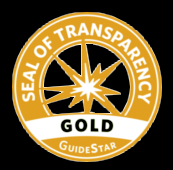I was recently invited to a meeting with the Georgia Department of Agriculture’s (GDA) equine manager, Mark Murrah, and Mat Thompson at the downtown office. The topic of conversation was the Mansfield horses. I gladly accepted and it turned out to be a great exchange of ideas and other information, as far as I’m concerned. We were joined by one their department lawyers and she contributed some great information about the current Humane Care for Equine Law.
We discussed GERL’s current Help A Horse Campaign and the number of horses that have already been adopted since we kicked it off in late April. I explained that my research and experience in moving “at risk” horses isn’t through the State’s auctions, necessarily, but through social media. Of course, there are plenty of horses that have moved through this program over the past 10 years that I’ve personally witnessed; however, most were rideable. “At Risk” can include a plethora of reasons: too young, too old, requires a pill or extra expense/work, etc. I’ve been writing articles about the GDA Horse Auctions for years and I guarantee that I expressed my feelings about the low turn-out, low prices for the horses AND the number of horses that went back to their stalls, in at least half of those articles. In fact, the last auction that was held on March 16,th, I reported that 8 of the 13 horses offered were returned to their stalls.
I am very sympathetic to the State’s predicament with the problem of too many horses moving too slowly through the system. Afterall, I personally wrote in the Georgia Equine Get Well Plan that the State’s equine program should be a revolving door. It clearly is not. It has bugged me for years that the Get-Well Plan states that these “at risk” equine should be moved to a rescue, yet GERL is barely able to scratch the surface with taking in the overflow. Most of the other Rescue organizations in Georgia are also at capacity and unable to take more from the State. It is a very complex problem that didn’t exist before 2007.
We also discussed law enforcement and their role in taking care of their own equine issues. I provided a GERL update regarding providing two counties (Oconee and Jones) with equine shelters for their Animal Control facilities and our upcoming law enforcement training meeting in LaGrange on July 18th. True to my new mantra, I didn’t miss an opportunity to discuss the need to zero in on the repeat offenders. I shared a conversation that I had recently with a local county animal control manager who conveyed that his county only gets 3 or 4 calls of equine abuse/neglect annually. When asked if they were repeat offenders, he admitted that some were. I encouraged him to investigate what a repeat offender costs his county. I suggested that stopping the repeats could cut their horse problems in half.
I have been saying for some years that our horse numbers are at an all time high and it is simply common sense that we’re going to have to do more than just rescue horses. But, let me say this about that…I’m standing stead-fast with our two rules: Number One: No welfare allowed; if it is a case that involves law enforcement, they must be willing to prosecute. And , Number Two: GERL is not a sanctuary and we must be able to adopt horses out to forever homes in order to make room for the next horse to come into our program.
I have been very pleased with the results of our Help A Horse Campaign. We have been able to find forever homes for eleven horses that have either been in the GERL foster program or the GDA’s program way too long. It is a good feeling to see what is possible when we all work together. We must keep up the momentum!
